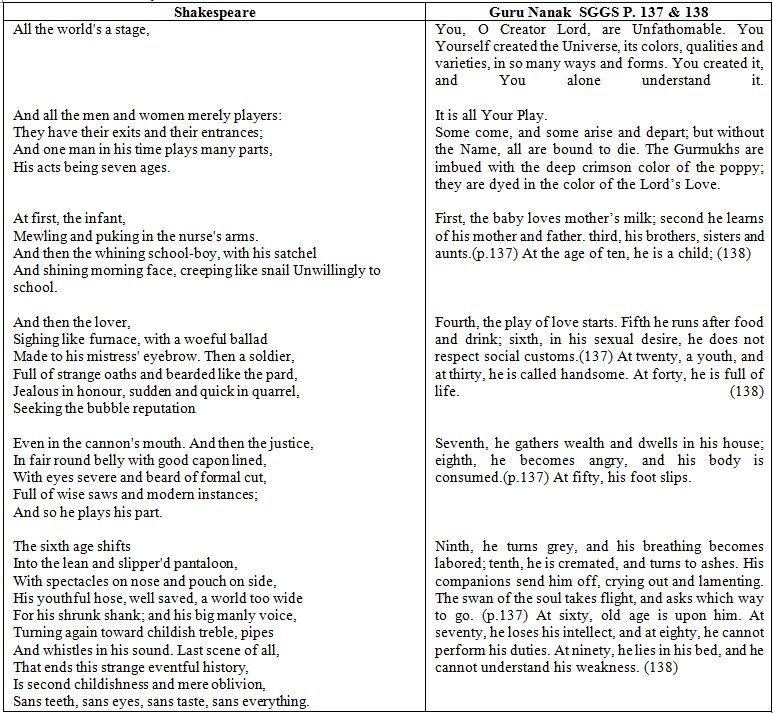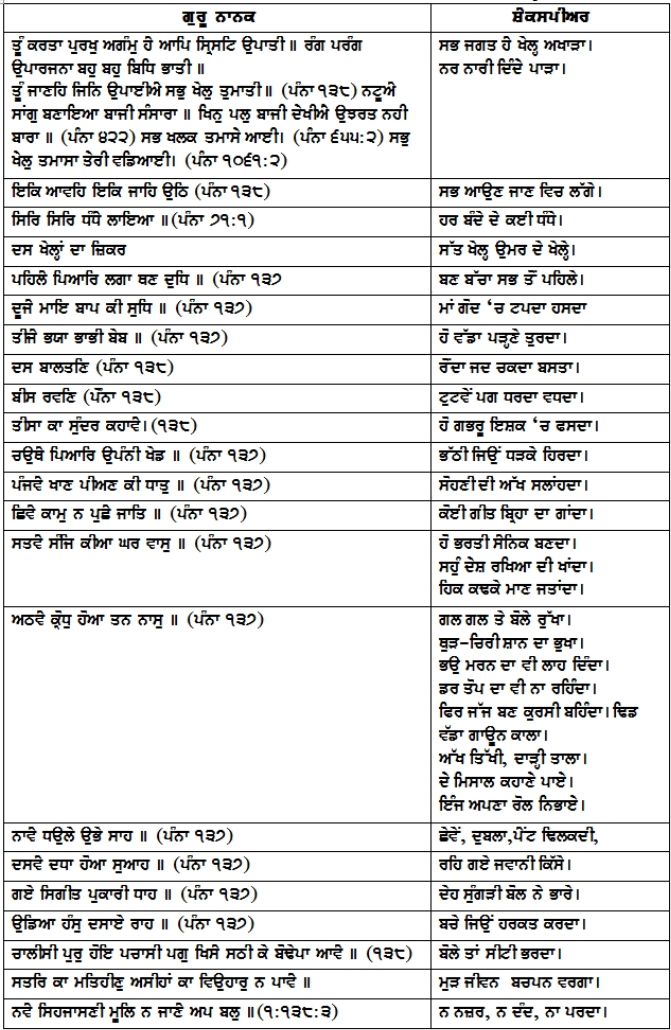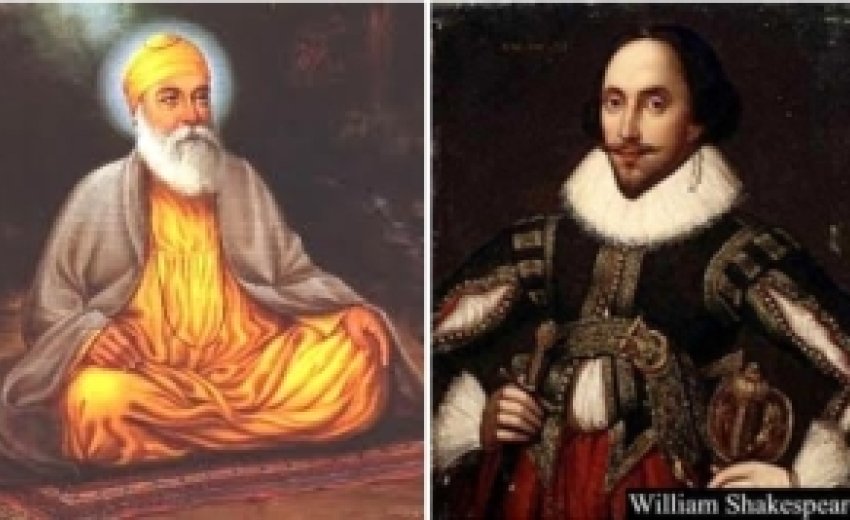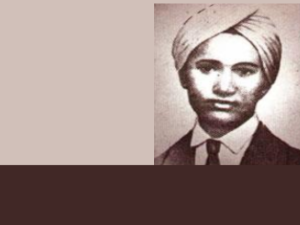 While reading Shakespeare's poem "All the world's a stage", I was surprised to find that its conceptual framework already existed in Guru Nanak's hymn and the poem content is very similar to the hymns of Guru Nanak recorded at Ang 137-138.
While reading Shakespeare's poem "All the world's a stage", I was surprised to find that its conceptual framework already existed in Guru Nanak's hymn and the poem content is very similar to the hymns of Guru Nanak recorded at Ang 137-138.
"All the world's a stage" is the phrase that begins a monologue from William Shakespeare's As You Like It, spoken by the melancholy Jaques in Act II Scene VII. The speech compares the world to a stage and life to a play, and catalogues the seven stages of a man's life, sometimes referred to as the seven ages of man: infant, schoolboy, lover, soldier, justice, pantaloon, and second childhood, "sans teeth, sans eyes, sans taste, sans everything". It is one of Shakespeare's most frequently-quoted passages. This is sometimes thought of as Shakespeare's last speech though that is not correct. The man in the poem goes through following stages:
- Infancy: In this stage he is a helpless baby and knows little.
- Childhood: It is in this stage that he begins to go to school. He is reluctant to leave the protected environment of his home as he is still not confident enough to exercise his own discretion.
- The lover: In this stage he is always remorseful due to some reason or other, especially the loss of love. He tries to express feelings through song or some other cultural activity.
- The soldier: It is in this age that he thinks less of himself and begins to think more of others. He is very easily aroused and is hot headed. He is always working towards making a reputation for himself and gaining recognition, however short-lived it may be, even at the cost of his own life.
- The justice: In this stage he has acquired wisdom through the many experiences he has had in life. He has reached a stage where he has gained prosperity and social status. He becomes very attentive of his looks and begins to enjoy the finer things of life.
- Old age: He begins to lose his charm - both physical and mental. He begins to become the butt of others' jokes. He loses his firmness and assertiveness, and shrinks in stature and personality.
- Mental dementia and death: He loses his status and he becomes a non-entity. He becomes dependent on others like a child and is in need of constant support before finally dying.
Guru Nanak has not described two stages of soldier and justice in the way the system existed in United Kingdom as it did not exist in India in the same manner. However he has described man's increasing desires during youth and later age.
Table 1: Comparative table giving Shakespeare's poem 'All the world's a stage',
and Guru Nanak's hymn in Ari Guru Granth Sahib P. 138
![]()

From the above comparison the fact remains that the two conceptual frameworks are same and the descriptions are also very similar. It however remains to be solved as to whether one of them borrowed the concept and the description from the other . Guru Nanak (1469-1539) and William Shakespeare (1564-1616) lived in two different periods the Shakespeare's period being after Guru Nanak and in different continents i.e., Asia and Europe. Hence they would not have met each other at all. Guru Nanak's hymns were already being recited by his disciples and existed in the form of pothi.
It remained to be researched whether Shakespeare utilized Guru's hymn or not. If he did so, how did he get it then? Was it that during Guru Nanak's visits to the West? Or someone from Europe got these verses which later came into the hands of Shakespeare? Or is there any likelihood of Shakespeare visiting Asian countries and got these during his visits? Only further research can reveal this. It is also a point to be noted that if Shakespeare is globally recognized for his poems like this; why Guru Nanak does not get the pride of the place globally in fact much better than Shakespeare as original thinker and a great saint.






